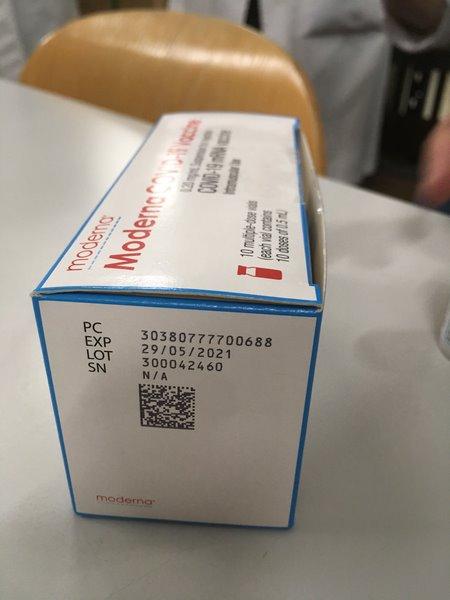
From face mask to vaccine: traceability in the healthcare logistics chain is crucial in the fight against COVID
Since the start of the COVID-19 crisis, governments all over the world have been faced with a logistical challenge. In the fight against COVID-19, the rapid supply of medical material was of paramount importance for public health. ‘But that material must also be safe and of high quality.’ says CEO Jan Somers of the non-profit organisation GS1 Belgilux. That is precisely why traceability in the healthcare logistics chain is so important.
The face mask saga in the summer of last year gave the general public a unique insight into medical supply chains. Enormous amounts of masks and other material were shipped from all over the world to our country. It was a huge logistical feat, and the quality of the products was also strictly monitored. Ensuring the safety of the material requires knowledge about the producer and the end consumer.
Patient safety comes first

The same applies to vaccines today, according to GS1 CEO Jan Somers. ‘In order to guarantee patient safety, governments need to know exactly who was vaccinated with which vaccine, and when.’ If problems are subsequently identified with a batch of vaccines, the right people can be tracked down immediately. But how do you keep an overview of those millions of vaccinations across the country?
GS1, an expert in the field of standardisation, has for years been championing the necessity of traceability in tackling this challenge. ‘Traceability ensures that we can follow the entire logistical journey of medical materials and products—from manufacturer to patient.' Somers continues. ‘It is the way governments and companies will be able to guarantee the safety of the logistics chain and the patient.’
Based on their expertise in other sectors, non-profit organisation GS1 also develops global standards to ensure the traceability of medical material in the logistics chain. These standards have proven their worth more than once, just as they have in the healthcare sector. They provide a unique and global identification of products.
‘In the case of vaccines, the bar code in particular ensures traceability.' Somers explains. ‘Based on data linked to a special 2D bar code—the GTIN identification code, the batch number, the series number and the expiry date—we know exactly how far a product has travelled to reach the end user.’
A recent Deloitte report praised the GS1’s approach: 'Global standards such as GS1 help ensure supply chain security, increase patient safety and instil confidence in vaccines, medicines and medical products'. At a time when public health is more than ever a priority, and vaccine scepticism is also on the rise in our country, this is a crucial mission for GS1.




